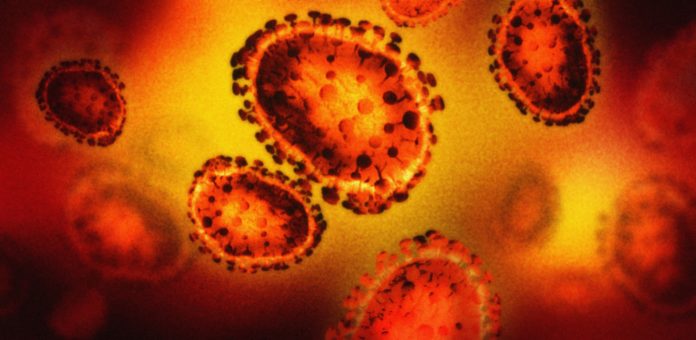
A team of researchers in the Netherlands reports today in the journal Microbiology Spectrum that the compound honokiol, that is found in the bark of multiple species of magnolia trees, inhibits replication of the SARS-CoV-2 virus in several types of cells. Their research showed that in these cells, honokiol caused the production of infectious SARS-CoV-2 particles in treated cells to fall to 1000th of previous levels. The compound also inhibited replications of other pathogenic human coronaviruses including MERS- and SARS-CoV.
“This suggests that it has a broad spectrum of activity and would likely also inhibit novel coronaviruses that might emerge in the future,” said Martijn J. van Hemert, PhD, associate professor, Department of Medical Microbiology, Leiden University Medical Center, Leiden, The Netherlands. “If honokiol can be developed into a drug, possibly in combination with other compounds, stockpiling it would help us to increase our preparedness for the emergence of the next coronavirus.”
“Broad-spectrum drugs could then be used to treat early patients and prevent spread, or they could be used prophylactically among healthcare workers, and in high-risk groups, such as among nursing home residents.”
The discovery arose from efforts from van Hemert’s group—and others around the world—to test an array of compounds for antiviral properties in response to the COVID-19 pandemic.
Van Hemert learned about honokiol from Jack Arbiser, MD, PhD, of Emory School of Medicine, during the early stages of the pandemic. Arbiser had been researching honokiol’s anticancer properties, and he told van Hemert he thought that the effects of the compound on the host cell might be beneficial for treatment of COVID-19 patients as well.
The new research also showed that honokiol also has anti-inflammatory properties which could make it useful as a therapy for patients in late stages of the disease when the body’s inflammatory response to the virus is causing symptoms. Delivery of the compound at this juncture might not have much effect by interfering with virus reproduction, but could mitigate the severity of the illness by addressing its symptoms, van Hemert noted.
The team showed that honokiol inhibits a later step in replications of SARS-CoV-2 which occurs after the virus has entered the cells. The team surmises that the compound achieves this by activating processes within the cells that impedes the virus’s ability to replicate. The researchers exhibited this in both the original strain of the SARS-CoV-2 virus and in the later omicron variant.
While the discovery is promising, van Hemert notes that the new research is still at an early stage.
“Our study merely provides the basis for further research into potential therapeutic applications,” he said. “It is important to mention that it is too early to claim that honokiol might be used in SARS-CoV-2 patients. This requires much more research and—if successful—properly conducted clinical trials.”













